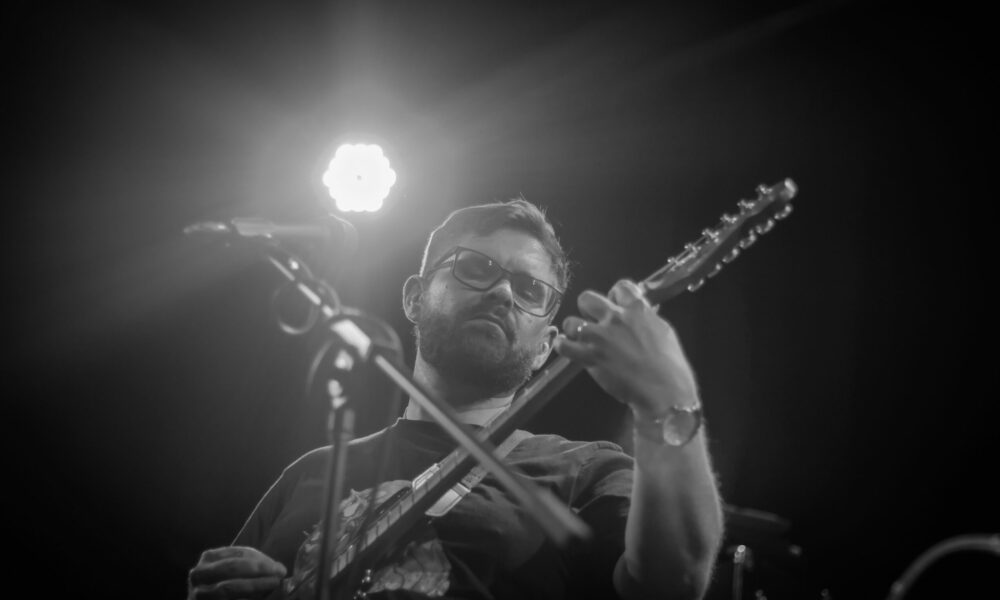

Today we’d like to introduce you to Josh King.
Hi Josh, we’d love for you to start by introducing yourself.
My name is Josh King, and I am a musician and nonprofit professional. My current band, Low Forest, is a space rock project based in Kansas City, and we just released our debut albums in 2023. Since before I was born, music has been a defining cornerstone in my life. My mother’s parents were opera singers who met in Carnegie Hall in New York, and she was born on tour in Las Vegas. My father’s parents met when my grandfather (a pianist, choir director, and organist) heard my grandmother sing at a college recital. Years later, I would grow up in the Episcopal church in Marshall, Missouri, singing four-part harmonies with my parents, brother, and grandparents. (We still crack out the hymnal on late nights around the holidays.) At the same time, my parents exposed us to a wide range of musical and cultural tastes. In a given week during my childhood, I might listen to Led Zeppelin, Hanson, Weird Al, Mozart, Jethro Tull, Spice Girls, Will Smith, George Harrison, and Steve Reich. But when I was 13, I found two CDs that resonated with me like nothing else ever had: Failure’s Fantastic Planet and Hum’s You’d Prefer An Astronaut. These pillars of the genre “space rock” completely changed me, and they inspired me with a new fantasy: creating my bands. At 14, I snuck into my stepdad’s room and played his archtop guitar for the first time. Six months later, I had my guitar, and I’ve been in bands ever since.
I learned how to play with my friends: self-taught, diving into theory books and the Online Guitar Archive (OLGA). We formed a pop-punk band, then a nu-metal band in high school. I went to college to study audio engineering with a full-ride scholarship. It’s safe to admit now that while I found engineering fascinating, my primary motivation was to learn how to engineer my music! As I switched majors to focus on Social Science, I created an alternative jazz rock group (The Oust), some experimental noise bands with my very close friend and lifetime collaborator, Brad Schumacher (The Man and The Scientist). I even started a student organization for guitar improvisation called the Guitar Instrumentalists’ Guild (GIG). Along the way, I recorded albums, went on my first tour, and played some truly amazing shows and a few festivals around the Saint Louis area.
I didn’t know it, but at that time, an important feature of my life was forming: a balance between music and social impact. In addition to being musicians, my family had been teachers, public servants, and caregivers. I wanted to see and benefit the world around me–with a proverbial guitar in one hand and a pen in the other. I wrote my first grants in college for student clubs (ironically, not GIG) and got our ultimate Frisbee team a first set of jerseys. Rest assured: we looked *very* official losing our first tournament.
In 2008, I moved to Shanghai, China. I studied Mandarin during the day, and in the afternoons, I would play with a cover band or build noise circuits in my dorm and perform harsh noise in the politically subversive, underground noise scene (under the name Jinxiaoyu). I’d take trains in the countryside and document environmental degradation, the PRC’s sweeping social programs leading up to the Olympics, and cool alleyways. I started performing solo singer-songwriter work, too. When I returned to the US, I had a professional dedication to helping people and an album of musical material. I was recording by the time I finished a year as an Americorps VISTA. By day, I would help small rural business startups in Missouri get technical assistance, and by night, Brad would help me record vocal takes in the clothes closet. I then doubled down, doubly: I started my own consulting business for nonprofits and decided “being a rockstar wasn’t a retirement plan,” so it was now or never.
My fiancee Sobia and I moved to Madison, Wisconsin, in 2011, and I dedicated my time to music, doing odd contract jobs in writing to make ends (barely) meet. I released my first solo album, The Everest Ruin, played countless amazing shows, and went on tour. We moved to Portland, Oregon, in 2012, and after more odd jobs and recordings, we landed in KC in 2013, which has remained our home for over 10 years.
As I started my Master’s of Sociology at UMKC, I posted ads on Craigslist for other musicians. I formed Tornadohead, The Last Glacier, and Joshua And The Ruins. I went on another tour (and made money!) and recorded my fourth solo album, The Dreaming Season. By day, I tutored students in statistics, ran analyses on data sets of environmental behaviors, and eventually started a job as a full-time grant writer. At night, I played metal shows at the Riot Room, Bottleneck, and Granada, transitioned to jazz sets for social events and private parties, and did acoustic sets at Porchfest and elsewhere around town. I also recorded a phenomenal instrumental math rock album with my dear friend Asher Mendel (Prime Numbers by The Subtanks), the first album that resulted in international radio coverage. I’m still unsure, trying to figure out what they said, but they enjoyed it!
But oddly enough, the one musical thing I still needed to do? Spacerock. Those albums that inspired me from the get-go also generated some great ideas for years, but I hadn’t gotten around to recording or focusing on them. Spacerock is illusively technical and surprisingly demands a fairly tight musical group to come out well. Recording and mixing its dense layers is also quite extensive. I hadn’t had the discipline or knowledge for such an undertaking for so many years. So, when COVID-19 was in full swing, I started pouring my musical heart into it. By day, I would write multi-million dollar grants to provide evidence-based treatment to trauma survivors, take my 3-year-old son on hikes and adventures, and pull up weeds in our ailing pandemic garden. By night, I began recording my penultimate work, which would become ENTROVERT and AMBIVECTOR, a dual-record concept album released in 2023 by my current band, Low Forest.
Alright, let’s dig a little deeper into the story – has it been an easy path overall, and if not, what challenges have you had to overcome?
Haha No! The road is often as bumpy as it is winding. What people assume about how little money musicians make is probably more than we do. The financial constraints, time commitment, rehearsals, hauling gear (and storing it), damp dive bars, awkward social media posts, and countless midnight hours “EQing the snare” can strain relationships, resilience, and cash reserves. For many years, I flatly assumed I would be unhoused, living from a car and on perpetual tour.
Fortunately, that life on the road was not the road taken. However, it speaks to one of the biggest challenges of this calling: the proclivity of an artistic pursuit to encompass and engulf everything in life. That is why striking a balance is all the more crucial to me. At this point, I am 37. I have generated over $37 million in grant revenue for nonprofits and causes I care deeply about. I have released more recordings and played more performances than I can count.
Most importantly, I provide stability and be present for my wife Sobia, our son Faizan, our family, and close friends–without whom most of this would amount to very little, if possible. During the pandemic, the very nature of recording, performing, and collaborating changed. I canceled shows, ceased booking, and went headlong into home studio tracking. How would I record an album if I couldn’t recruit players–much less rehearse with them and record in the same room? And that’s when I “met” Halston Rossi.
Being a fan of space rock, in general, can be a dedication. Many bands who pioneered the sound existed in the 1990s–some based here in Kansas City, notably Shiner. Many pioneers disbanded for several decades before reuniting and making great works in the past 10 years. As a result, the fan base grew in what felt like a posthumous, niche reverence. So when I needed a drummer, I turned to the social media groups of fellow Hum devotees, asking if anyone knew anyone who had a home studio and wanted to drum on an album. In short, I received a response from Halston Rossi, a drummer in Virginia. We spoke over Zoom, started sending each other files, and somehow recorded an entire album without ever setting foot in the same room. To this day, nearly three years later, we have not yet met in person. We sometimes joke that our first handshake has to be when we accept our first Grammy. (Here’s to hoping!).
Thanks – What else should our readers know about your work and what you’re currently focused on?
As a musician of 25 years, my most proud work is ENTROVERT and AMBIVECTOR by my current band, Low Forest. As a space-rock enthusiast and noise musician, I wanted to create an incredible concept album with one-half space and one-half rock. On the one hand, ENTROVERT is a cool rock album with guitar solos, layered rhythms, awesome drum fills courtesy of Halston Rossi, and beautiful vocal melodies. The lyrics are mature, and there’s no cussing, screaming, or bigotry. I’m proud of it in its own right, and it includes songs I’ve written but have yet to release over 20 years.
On the other hand, there is AMBIVECTOR, an ASMR noise experimental ambient drone album that is the conceptual “space” of the rock. This I co-created with Brad Schumacher, my longtime friend and now Denver-based musician (Night Grinder, Bonecaster). I wrote, recorded, and mixed both albums from my modest “DIY” home studio in Lee’s Summit and brought Brad and Halston in for their experience, expertise, and incredible musicianship.
What sets this work apart is what brings them together: when you play both albums at the same time, they sync up. The first track on each album is nearly identical to its counterpart, which allows you to get the exact timing lined up by pausing the playback intermittently. From there, ENTROVERT and AMBIVECTOR interweave with sonic soundscapes, heavy guitars, unnerving effects, and beautiful vocal lines. AMBIVECTOR includes field recordings of rain, wind chimes (which I made by hand), manual granular synthesis, noise performances using circuits I built, and reversed, slowed recordings from cassettes I recorded in high school. It is also a conceptual journey from the sun to Pluto, sampling public-domain NASA recordings of radio waves from each real planet. Brad Schumacher also used the program Metasynth–a visual synthesizer responsible for The Matrix soundtrack–to feed images of each planet into the program and create sonic representations of them, which are layered throughout. Finally, to make all of it fit together, I used relative modal composition to have AMBIVECTOR fit into ENTROVERT when played together. What is minor (or Locrian) in AMBIVECTOR songs is major in ENTROVERT.
Of course, none of this matters if it doesn’t rock; fortunately, it does! After releasing the album in March of this year, I recruited local musicians Cayden Hunter, Keith Howell, and Alex Dunn to join me in performing Low Forest’s music live. They have been great, and the reception in Kansas City has been amazing. In June, we played at recordBar with renowned doom metal act Pallbearer and local Lawrence-based legends Drifter. We have received much attention, recognition, accolades, and appreciation for the albums and live shows. It is quite beautiful to have the music I feel most proud of getting so much recognition and even more beautiful to be able to play live shows again with great musicians, excellent venues, professional sound engineers, and amazing crowds.
Why does it matter? What’s the takeaway? I think many of the stories we hear are inspired by people who sacrificed everything else for the one thing–I know they have inspired me, and I’ve tried it myself a few times (to disastrous results). And I also hear stories of people who haven’t played in years, who sold their gear, took a hiatus, and never picked it back up, told with a nostalgic resignation. I tried this, too (with different, disastrous results). But less often do I hear stories of balance, contentment, family, profession, and passion not at odds but at an apex–where the compartmentalized sectors of life come together to lean on each other in a mutually supportive structure of self-care, resilience, and unparalleled bounty. And that is what has worked and worked out for me. I am very aware of and grateful for how fortunate I am. I am likewise thankful to be able to share this story and my surprised, unwitting balance with others in the hopes that it can offer a counterpoint to the prevailing zeitgeist of all-or-nothing. Whatever happens, I will continue to make music, advance the public good, and be with the people I love. That, I think, is what success is to me: a fulfilling balance. I didn’t expect that in life, but I have it now, and I hope that if that is what you’re looking for–even if you don’t know it yet–you find it, too.
What are your plans for the future?
I’m excited to share that we have several live shows this Fall in the KC area. Low Forest has shows in September and October. We are also releasing a Dolby Atmos version of one of our singles, a remixed “combined” version of both ENTROVERT and AMBIVECTOR playing at the same time, and–most excitingly–new music which we plan to release in the form of singles. The opportunity to record, release, and perform Low Forest music is a fulfilling aspect of my life. I can’t wait to present our new material for the Kansas City region.
Contact Info:
- Website: https://lnk.bio/lowforestband
- Instagram: @lowforestband
- Facebook: https://m.facebook.com/LowForestBand
- Youtube: https://www.youtube.com/@LowForestBand
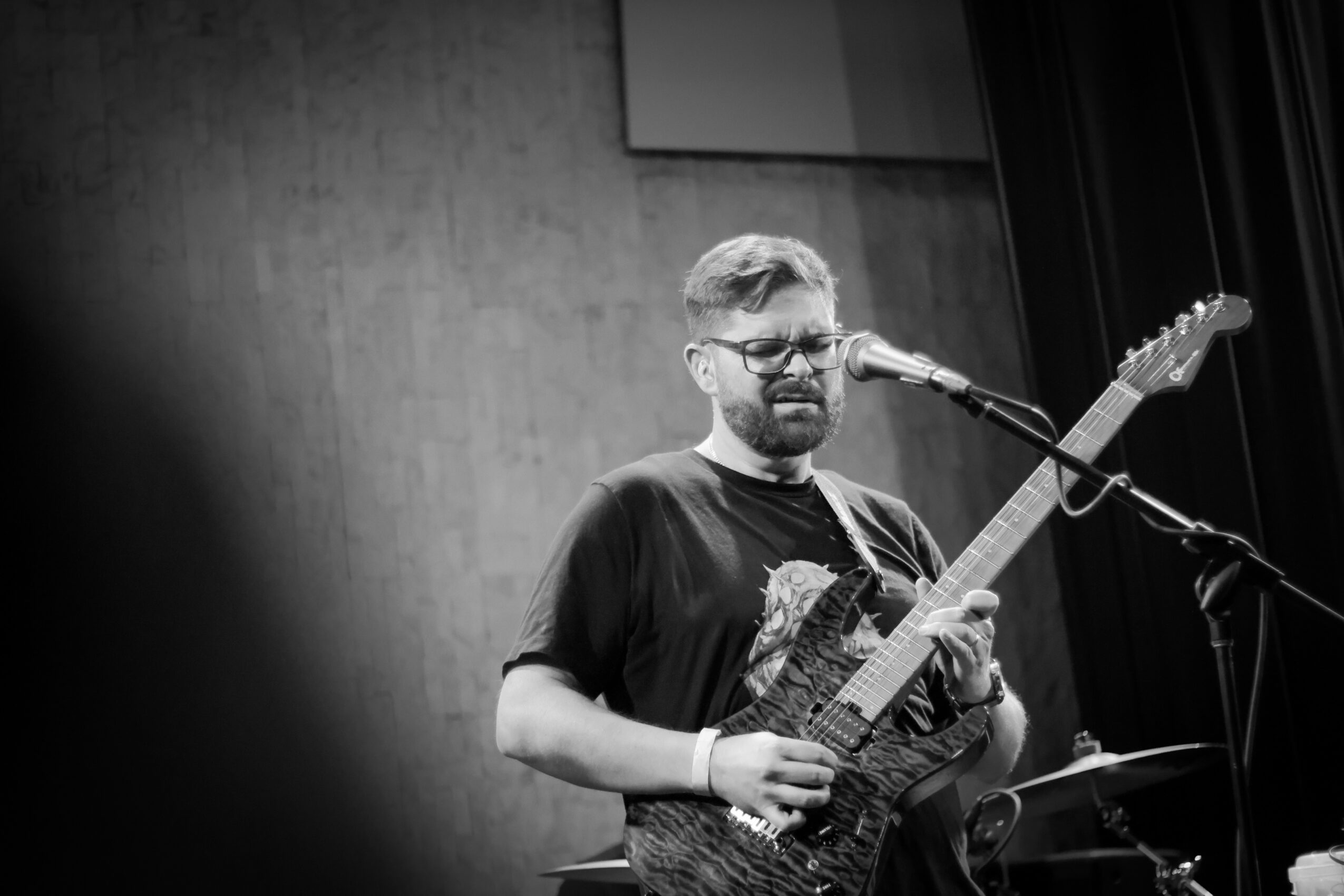
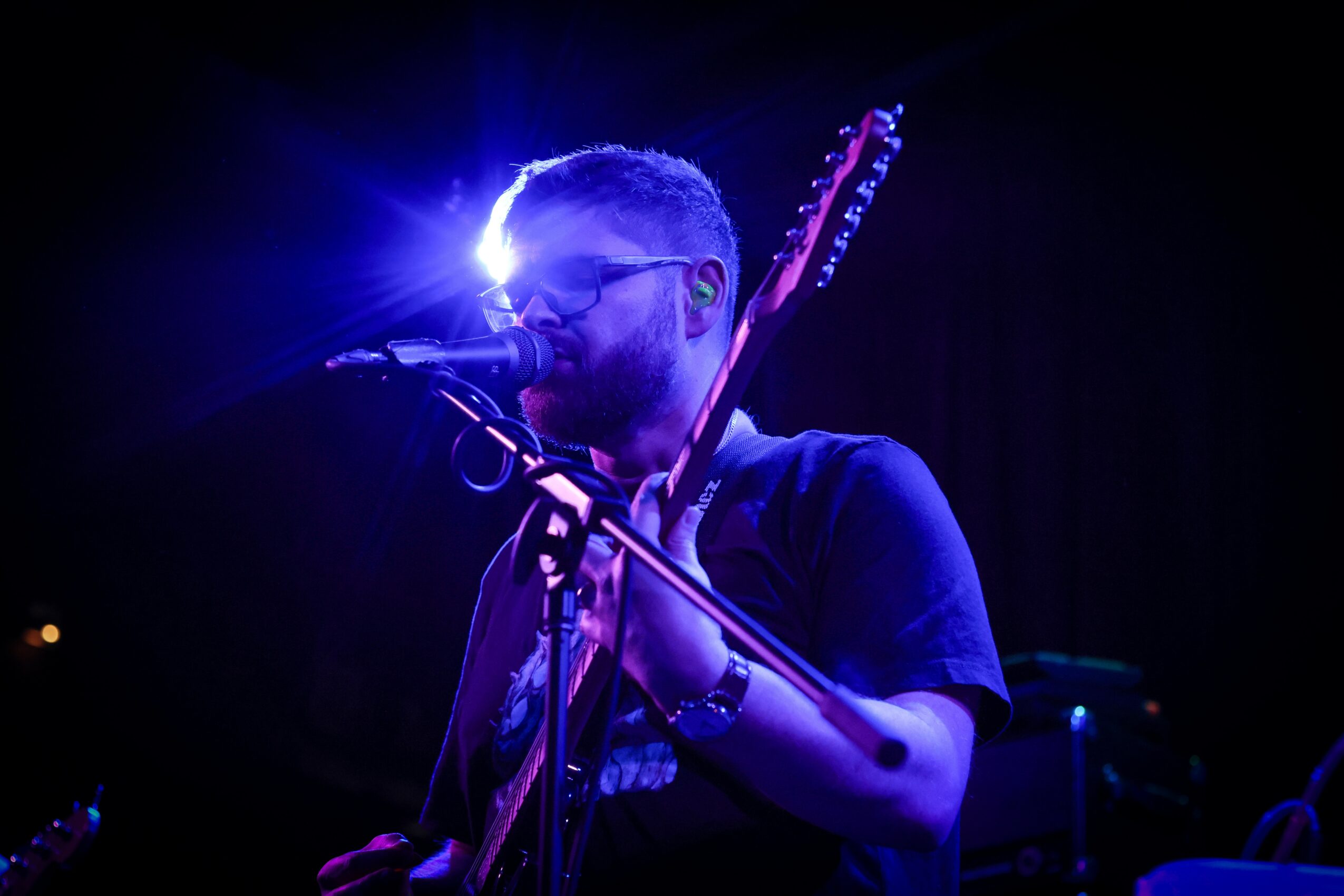
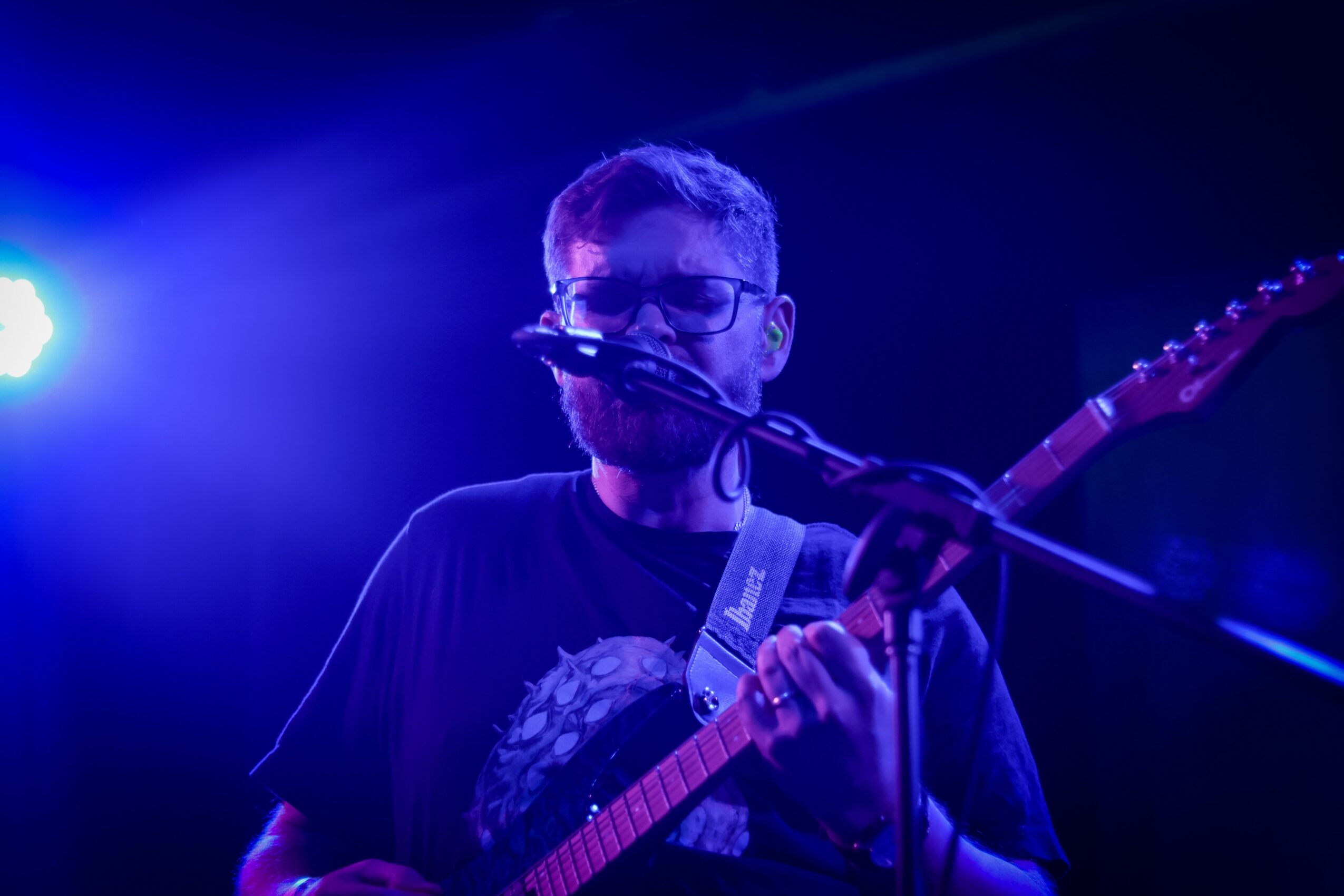
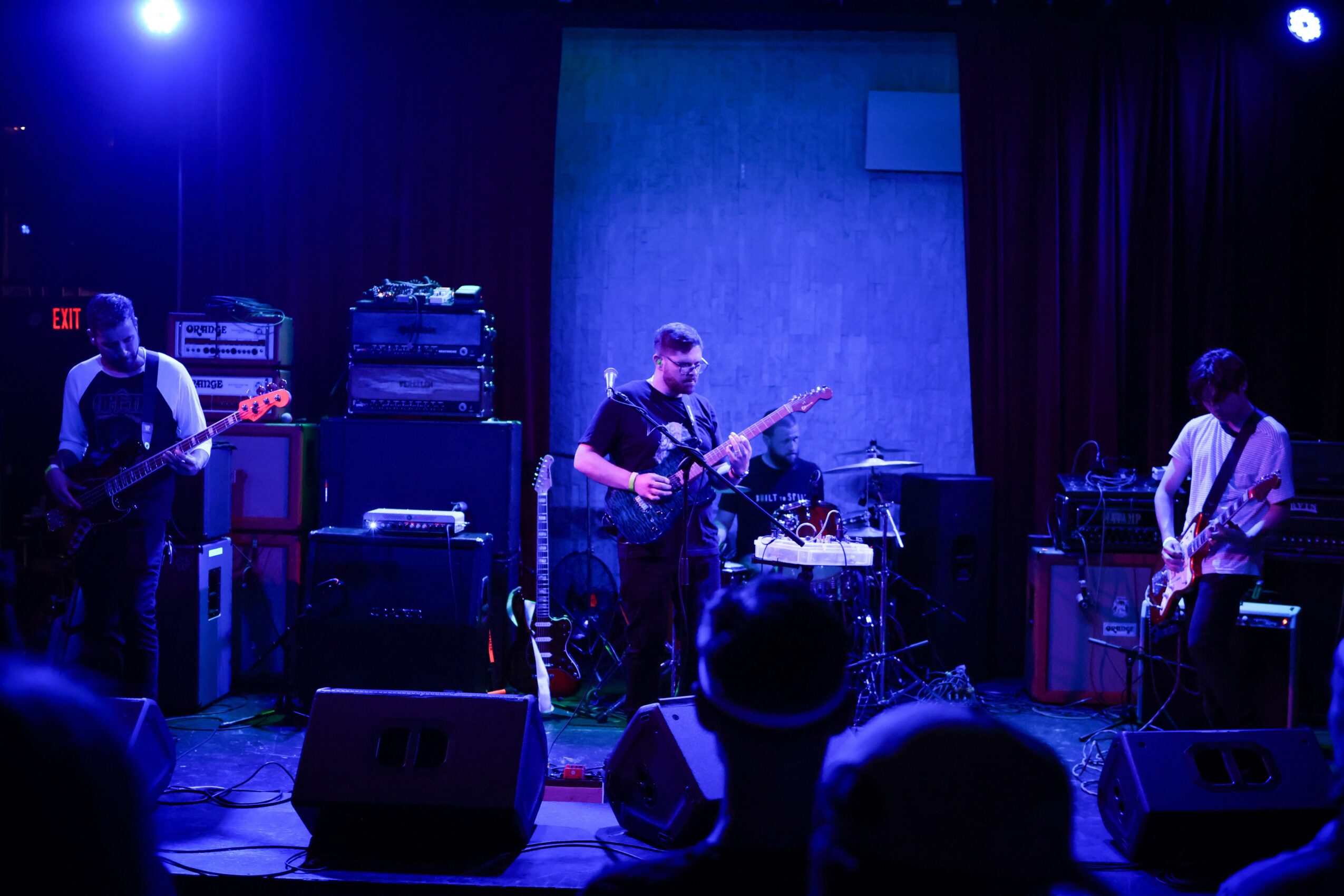
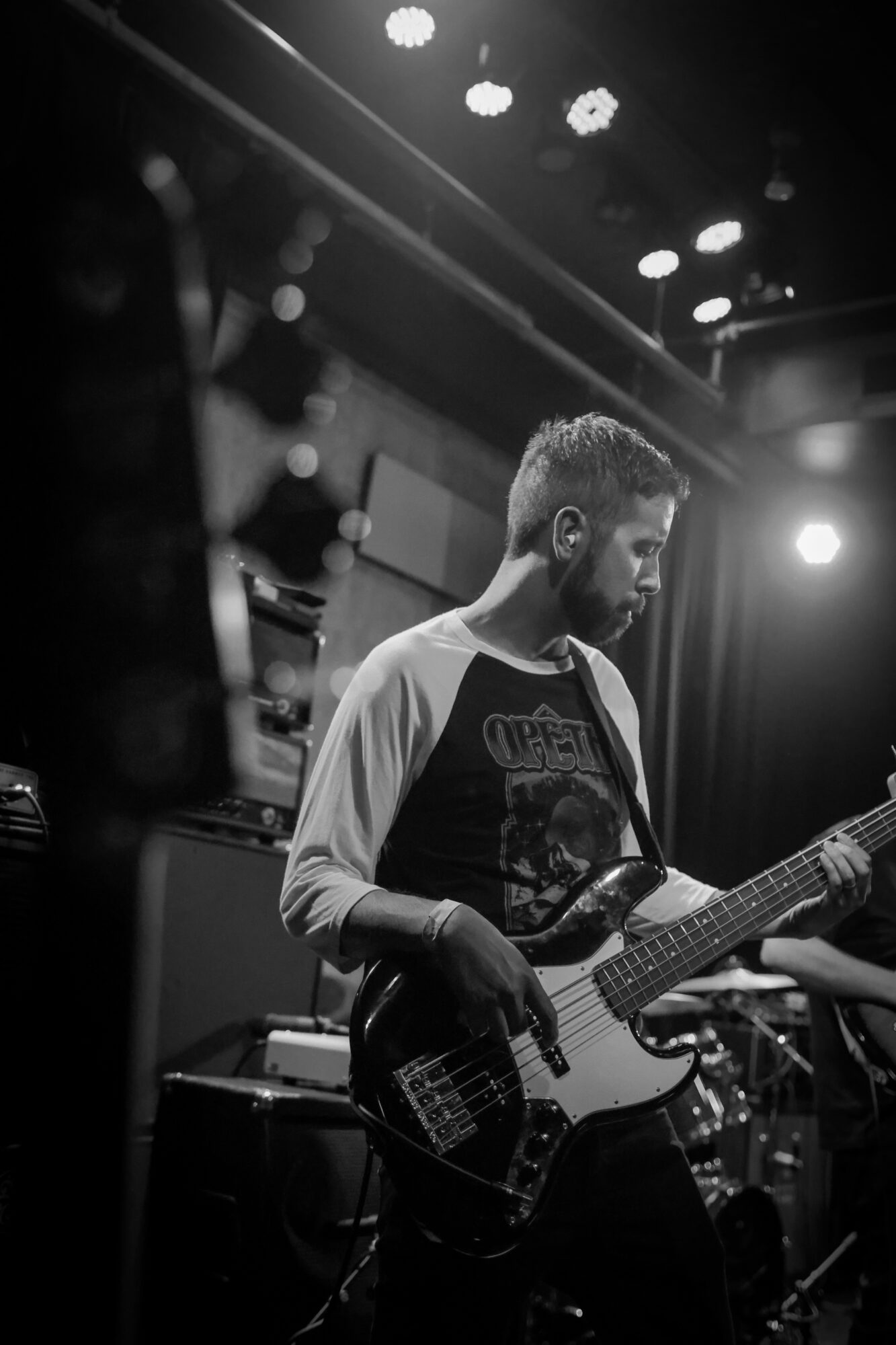
Image Credits
Photos by Courtney Captures; Entrovert album cover by Josh King.












